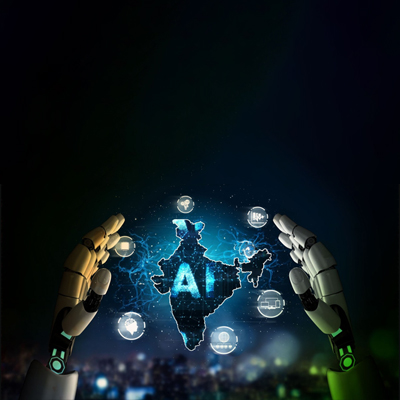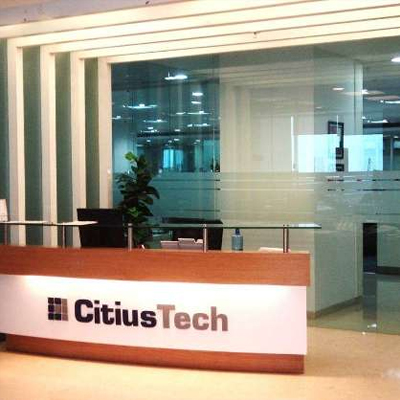The Future of Work: AI and its Impact on Employment

Irshad Saifi, Director IT and Digitization (CDIO), Shardul Amarchand Mangaldas & Co
The advent of AI has ushered in a new era in the labour market, marked by rapid technological advancements and shifting employment paradigms. AI's capabilities, ranging from automating routine tasks to facilitating complex decision-making processes, have profound implications for the workforce.
“AI is redefining the fabric of workforce globally. In this era of transformation, our greatest challenge is not the technology itself, but our ability to evolve with it — to harness its potential while nurturing a workforce that is adaptable, skilled, and ready to step into the future.”
AI and Job Displacement
AI's potential to automate tasks has raised concerns about job displacement. According to a report, up to 30% of global workers could be displaced by 2030 due to AI and automation. Industries like manufacturing, transportation, and customer service are particularly susceptible, where AI can efficiently perform repetitive and predictable tasks. However, this displacement is not uniformly distributed across geographies or sectors, necessitating a nuanced understanding of AI's impact.
AI and Job Creation
Contrary to the narrative of job displacement, AI also exhibits significant potential for job creation. The World Economic Forum's "Future of Jobs Report" highlights that 97 million new roles could emerge by 2025, roles that are more adapted to the new division of labour between humans, machines, and algorithms. These jobs will likely be in fields such as AI and machine learning specialists, data analysts, and software developers, emphasizing the evolving nature of work.
Changing Nature of Jobs
AI is not only about the binary of job creation or displacement – it is fundamentally altering job roles and skill requirements. Jobs are evolving to integrate AI, demanding a workforce skilled in digital competencies, problem-solving, and critical thinking. For instance, healthcare professionals are now leveraging AI for diagnostic assistance, requiring them to interpret AI-driven insights.
Skill Gap and Reskilling
The displacement of jobs by AI is paralleled by the emergence of a skill gap. The "Future of Jobs Report" by the World Economic Forum estimates that 50% of all employees will need reskilling by 2025. This gap underscores the urgent need for comprehensive reskilling initiatives to prepare the workforce for AI-integrated roles. It is not just about technical skills but also about cultivating adaptability, creativity, and emotional intelligence.
Policy Interventions and Ethical Considerations
Navigating the impact of AI on employment necessitates proactive policy interventions. This includes updating educational curricula, investing in lifelong learning, and ensuring equitable access to reskilling opportunities. Additionally, there is a growing imperative to address the ethical implications of AI in the workplace, including biases in AI algorithms and the implications for worker surveillance and privacy.
Case Studies and Real-World Examples
To illustrate AI's impact on employment, consider the case of the automotive industry. AI-driven automation in manufacturing has streamlined production and displaced certain manual jobs. Conversely, it has created new opportunities in AI maintenance and programming. Another example is the retail sector, where AI in inventory management and customer service has transformed job roles, necessitating new skill sets for employees.
The Road Ahead
The future of work in the AI era is not a zero-sum game of job loss and gain. It is an evolving landscape where the nature of work is being redefined, demanding a workforce equipped with new skills and a policy framework that supports this transition. Embracing AI's potential while mitigating its challenges requires a concerted effort from governments, educators, industry leaders, and workers themselves.
The journey into industry
Mr. Irshad Saifi, currently serving as the Director of IT and Digitization (CDIO) at Shardul Amarchand Mangaldas & Co., spearheads the firm's digital transformation strategy, focusing on enhancing productivity and building intellectual property. He is a Stanford Alumni known for his transformative leadership in digital technology.
With over two decades of extensive experience in top-tier organizations like Havells India Ltd, SUN PHARMA, Citi, and Agilent Technologies, Mr. Saifi has consistently delivered groundbreaking digital strategies and implementations. Notably, at Shardul Amarchand Mangaldas & Co, he led a customer-centric digital transformation strategy, resulting in a 40-60% increase in lawyers' productivity through AI/ML integration and the development of an innovative online platform for commercial dispute resolution in India. At Havells India Ltd, he drove Industry 4.0 initiatives, resulting in a 20% increase in OEE (Overall Equipment Effectiveness) and significant productivity enhancements.
Mr. Saifi’s expertise spans AI, ML, IoT, RPA, and cyber security. He holds a dual MBA, an M.Sc. in Computer Science, and a range of global certifications including PMP, ISO, Six Sigma, CISM, Cisco, Microsoft, ITIL, and Prince2TM. His achievements have earned him recognition from esteemed organizations such as IDG, IDC, Greyhead Media, and Tec Plus Media, as an innovative CXO. Mr. Irshad Saifi is also known for his pro bono engagements as a Stanford Seed Consultant, Member of the Institute of Directors, and Co-Chair of the FICCI National Committee - Digital Transformation & AI.
.png)







